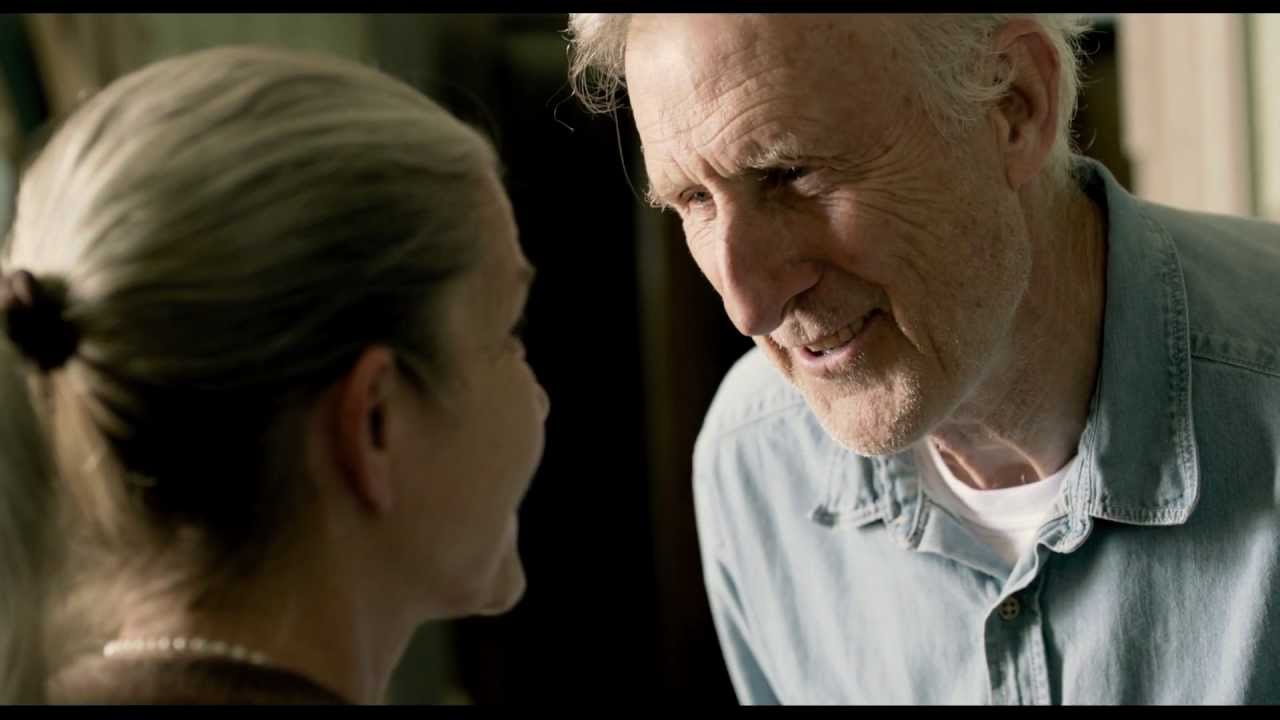By Chlotrudis Independent Film Society
Rating: 4 cats
Director: Michael McGowan
Starring: Barbara Gordon | Campbell Scott | Geneviève Bujold | George R. Robertson | James Cromwell | Jonathan Potts | Julie Stewart | Rick Roberts

Original language title: Still
Country: canada
Year: 2013
Running time: 102
IMDB: http://www.imdb.com/title/tt2073086/combined
Jason says: “It’s funny what gets to a person during this type of movie. I was doing okay through most of STILL MINE (which played festivals as STILL, and may have kept that name in some places), and then I see that this elderly couple has a door frame where they recorded the growth of their kids and grandkids like my own grandparents did, and then I start to lose it. I suspect that there’s a thing like that in this movie for everyone, which will make it even more effective beyond just being a fine movie on its own.
“Craig Morrison (James Cromwell) is one of those wiry old farmers whomay have slowed down some, but still tends to his strawberries, chickens, and the like in his mid-eighties. Though he hasn’t changedmuch over the years, the world around him has – not just because the local market will no longer purchase his berries because of policy, butalso because his wife of sixty years, Irene (Geneviève Bujold)is inthe early stages of dementia. He wants to build a smaller house to meet their needs, but if he thought selling strawberries involved onerous regulations, he can barely imagine modern building codes.
“STILL MINE is about memory and continuity, most obviously in how Irene is slipping away despite Craig’s attempts to remain the independent,capable person he is. Writer/director Michael McGowan also populates the movie with more tangible symbols of these ideas, though, from that briefly glimpsed doorframe to a kitchen table that has, in its own way, recorded the Morrison family’s entire life. The film starts and ends with the story of a baseball Craig owns, signed by both Babe Ruth and Lou Gehrig, and while its purpose in the story can sometimes be unclear, it’s also a solid representation of Craig’s memories of his father, a figure who may be long dead but who clearly still looms large in his life. These connections may seem temporary and massless, as Irene’s deterioration suggests, but that’s only one side of it – lives well lived, we see, leave impressions.
“If one wants to leave an impression, there’s worse ways to go about it than to have these two old pros leading the cast. James Cromwell may be fifteen years younger than the real-life Craig Morrison was when going through this, but the part seems made for him – while Craig seems a fair and decent man, there can be a harshness to him that goes beyond the stubbornness that makes him buck the system. The fact that he can be a little bit of a jerk makes the moments of warmth all the more real and effective. Those often come opposite Geneviève Bujold; they create the sort of love onscreen that has had time to grow complex and multifaceted, able to forgive when they upset each other and still show that growing old together is as much continued joy as acceptance of shortcomings. There’s a wonderful spark when they reminisce on how they first met, and Bujold is delightfully sharp of tongue in Irene’s good moments. It allows the moments when she’s not able to remember something feel full of loss even though we’ve never seen her otherwise, and Bujold can create moments of true uneasiness when Irene seems to be a hollow shell before something jolts her back to the present.
“They have a pretty nice supporting cast to work with, too. Julie Stewart and Rick Roberts play the two children of the couple that we see most often (out of a stated seven; presumably many of the rest either live in some other province or McGowan wanted to streamline the cast without writing out five real-life siblings), old enough to have their own gray hair and life experiences, so that while they easily feel like reflections of their parents, they’re also much more. George R. Robertson plays the sort of neighbor who is probably Craig’s best friend despite this being expressed by the pair taunting and insulting each other over decades; Barbara Gordon offsets this nicely as his wife. Campbell Scott, meanwhile, is an enjoyably dry contrast as Craig’s lawyer. Jonathan Potts, admittedly, is much less interesting and nuanced as Craig’s main nemesis at city hall.
“McGowan and company do a fine job in giving the film a sort of lived-in feel that is only appropriate for a film dealing with the elderly; the Morrison farm, for instance, always feels full but never cluttered, and small details like how the wheel wells on Craig’s truck seem to be worn away by salt and use help sell it. McGowan does at times seem a bit too enamored of the film’s secondary theme – how rigid regulation hampers those who need it the least, especially since it leads to a courtroom climax that there doesn’t seem to be any honest way out from.
“But, then, this is not a movie that necessarily needs to have all of its facts lined up even if it didn’t talk about the dangers of excessive formalities. It’s about connections that may be shifting and difficult to quantify, and it’s tough to ask for them to be expressed better than they are by Cromwell and Bujold. 4 cats
“Seen 21 April 2013 in Coolidge Corner Theatre #2 (Talk Cinema, digital).”
